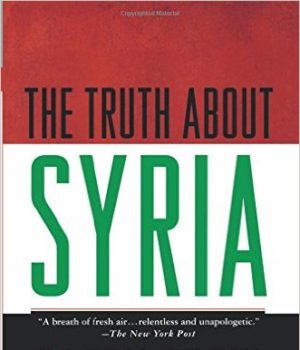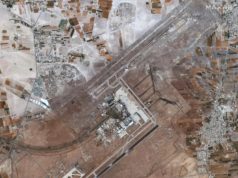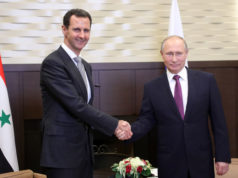Forty years ago, in assessing the foreign policy direction of the regime of Hafez Assad in Damascus, the U.S. Central Intelligence Agency concluded that “[t]he question in regard to Syria’s future… is not whether it will be moderate or radical, but what will be the kind and intensity of its radicalism.” Four decades later, the new U.S. administration finds itself struggling with the same question as it works to craft a new policy toward Syria.
These days, most politicians seem to favor engagement, ever looking inward to find the American solution to Syria’s behavioral problems. The thinking is that if the United States would only offer this carrot or that incentive, Syria would reorient itself away from Iran and terrorists, dump its designs to establish a Greater Syria, stop subverting its neighbors, and become a constructive player in the Middle East—perhaps even a U.S. ally. Some have even posited the idea that the problem with Syria actually lies with us, and our failure to explain to Damascus how changing its behavior would actually benefit the regime there.
Along comes The Truth About Syria, Barry Rubin’s detailed survey of Syrian actions and foreign policy (mis)adventures since its emergence as an independent state in 1946, throwing cold water on America’s passionate climb toward Syrian engagement. Unlike other recent books on the subject—among them Flynt Leverett’s Inheriting Syria and Eyal Zisser’s Commanding Syria—Rubin’s work stands out both for its passion and its critical perspective. His essential point is that Syria is not radical as a result of mistreatment by the West or Israel, but because the regime needs radicalism to endure. Therefore, engagement is not only bound to fail, but will encourage more militant behavior from Damascus.
But can a regime that has systematically abused its own people, fomented instability abroad, and offered no positive vision for the future survive simply on a mixture of luck, brute force, and the West’s inability to stand firm? According to Rubin, the answer is a resounding “yes.” He provides ample proof that on nearly every conceivable issue in the Middle East, the U.S. and Syria are diametrically opposed to one another. It is not in Syria’s interest to have a peace agreement with Israel that would inevitably increase American influence in the region, just as it is not in its interest for a separate Palestinian-Israeli peace to emerge that would forever rob the regime of its most valuable card: the Palestinian issue. Syria’s importance in the region rests on its ability to cause mischief. Absent a compelling grievance, Syria would be reduced to a fourth-rate power, void of natural resources, and with little influence in the Arab world.
America, however, has so far failed to grasp this fact. Indeed, more often than not, Rubin points out, the Assad regime is treated as “a privileged dictatorship, a most favored terrorism-sponsoring nation, and a forgiven massive violator of human rights.” And the worse Syria behaves, up to a point, the better it fares diplomatically.
Yet even as they struggle to find the right combination of incentives to induce a change in the regime’s behavior, U.S. policymakers have ignored the only case where lasting change was successfully effected. In 1998, Turkey threatened to invade Syria over the latter’s support for the radical, anti-Turkish Kurdish Worker’s Party (PKK). Syria backed down. Turkey remains the only country on Syria’s border that threatened to respond to violence with violence. Today, it is the only country on Syria’s border not terrorized by the Assad regime. The lesson is clear: Damascus fears the credible use of military force that could undermine the stability of the regime.
Rubin’s policy prescriptions are simple. Syria must not be engaged. Rather, it should be pressured and deterred. This requires credibility, patience, and a demonstration by the West that it will not falter. Syria must be denied assets, isolated, and its endeavors frustrated using all tools in the Western foreign policy arsenal—from trade to counter-alliances, diplomatic “naming and shaming,” and covert operations. The policy should be neither appeasement nor regime change, but “tough diplomacy backed up by strength and staying power.” But, given the fecklessness of Western policy in the region so far, he holds out little hope that this will happen: “Possibly the need for many more years of suffering is inescapable… Another opportunity for real progress can be built only on the basis of new defeats and failures.” Likewise, for Rubin, the idea of a “grand bargain” with Syria is absurd. Simply put, the U.S. cannot offer Assad what he wants without further destabilizing the region.
The Truth About Syria is certainly not without its blemishes. A less passionate rebuke of Syrian behavior, and a toning down of the hyperbole, would have greatly strengthened Rubin’s case. So would have extending a small benefit of the doubt to any of Assad’s actions. But Rubin’s gloomy conclusions are grounded in an accurate understanding of Syrian motivations. The inconvenient truth is that the Assad regime will continue to strive to control its neighbors for the foreseeable future, because that is its nature. And, despite the fervent wishes of policymakers in Washington, nothing so far gives any indication that the tiger in Damascus is about to change his stripes.






